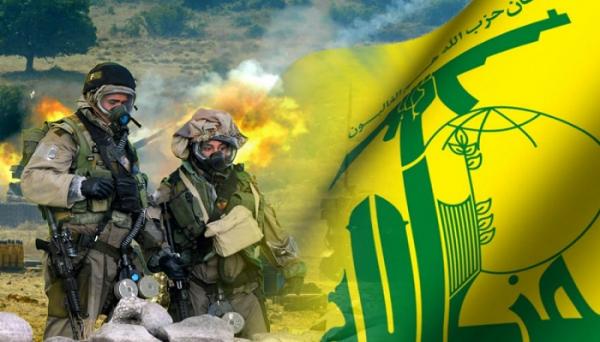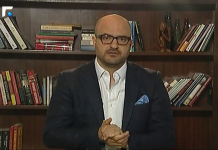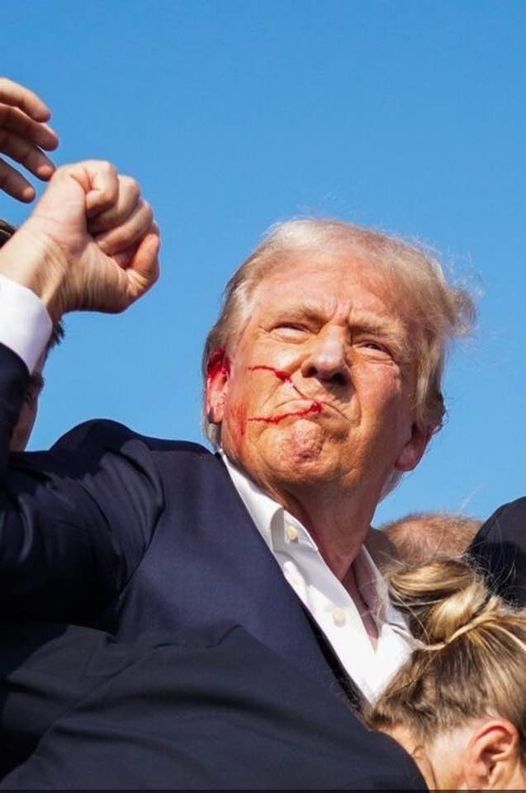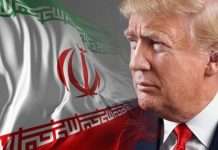رسالة نعيم قاسم تُظهر أن حزبه الإرهابي يتعرض للضغوط
يوسي منشاروف/جيروسالم بوست/17 تشرين الثاني/ 2025
(ترجمة من العربية بحرية بواسطة الياس بجاني بالإستعانة بمواقع ترجمة ألكترونية)
Hezbollah leader’s message shows the terror group is under pressure
Yossi Mansharof/Jerusalem Post/November 17/202
However, action must also extend to the social and ideological arenas, not just the military (prevention efforts) and economic (sanctions) fronts.
In his speech marking “Martyrs’ Day” held last week, Hezbollah Secretary-General Naim Qassem, declared: “The continuation of aggression in this manner, of killings and harassment, cannot go on. Everything has its limits, and I will say no more than that. Relevant parties should take heed of the situation because it cannot continue in this way.”
This warning comes after Hezbollah, in an open letter published on November 6 to Parliament Speaker Nabih Berri and Prime Minister Nawaf Salam, emphasized its right to resist Israeli aggression. However, given the terror group’s complex position, it is doubtful whether its ongoing restraint has reached its limit.
Hezbollah appears unable to afford renewed confrontation, or even reciprocal strikes, with Israel. In a scenario of renewed conflict, even if limited, the organization could risk losing the gains it has achieved to date.
Its difficult political situation is reflected in another part of its open letter, where it expressed opposition to negotiations with Israel. This was in response to growing calls from senior Lebanese government officials, including President Joseph Aoun, parliament members, and media circles opposing Hezbollah, who argue that peace with Israel is existentially necessary for Lebanon.
Hezbollah is rearming
Hezbollah is in the midst of a process of rebuilding and strengthening itself, with the assistance of the Islamic Revolutionary Guard Corps’s Quds Force and through its own production capabilities. Daily Israeli strikes indicate the intensive pace at which the terror group is managing this reconstruction process.
Israel attempts to match this pace, but data provided by the IDF to the Israeli media in recent days clearly point to Israel’s challenging position vis-à-vis Hezbollah. In recent weeks, the organization has successfully smuggled hundreds of rockets, including from Syria, repaired and returned damaged rockets and launchers to service, and recruited thousands of new operatives.
Thus, Qassem’s declaration seems intended to appease elements within the organization dissatisfied with the containment policy led by Hezbollah’s Jihad Council (its central command) under his leadership. As reported in early November, there was simmering frustration among field ranks due to the lack of response to Israeli attacks.
Furthermore, Qassem’s implied threat appears directed at the leadership of the Lebanese state, adding another layer of pressure on them to act against Israel to halt attacks. This aligns with multiple parts of his speech, intended for their attention and aimed at conveying the “seriousness of the threat” from Israel and thereby the importance of Hezbollah’s weaponry.
Israel at a crossroads
Israel currently faces a crossroads. The Lebanese army’s pattern of activity against Hezbollah is insufficient. On the whole, the army projects weakness against the terror group and cannot stand against it. Meanwhile, Hezbollah threatens to sever the hand of anyone attempting to touch its weapons, as declared by its political council’s deputy chief, Mahmoud Komati, in April. As Qassem emphasized in his speech, Hezbollah’s weapons remain its source of strength, alongside its faith and determination.
Iran, on the other hand, supports Hezbollah’s activities in order to maintain its grip and status among Lebanon’s Shi’ite population. In late October, the Office of Supreme Leader Ayatollah Ali Khamenei, in cooperation with Hezbollah, released the Arabic edition of the Iranian leader’s scholarly book, Poetry and Music: Research on the Religious Law of Imam Sayyid Ali Khamenei.
At the Beirut ceremony, Naim Qassem praised Khamenei’s scholarly skills, reminding Lebanon’s Shi’ite community of the religious sponsorship Iran provides Hezbollah. This sponsorship complements economic sponsorship, with Tehran transferring $1 billion to the organization since January, as recently revealed by the Trump administration. Religious patronage aims to strengthen the connection between Lebanese Shi’ites and Iran under Khamenei and give them additional reasons to remain loyal to Hezbollah.
Khamenei’s office also signals its full personal support for Qassem, despite, and largely because of, the ridicule he faces on Lebanese social media. The office published a portrait of Qassem alongside previous Hezbollah leaders Abbas al-Musawi, Hassan Nasrallah, and Hashem Safieddine, accompanied by Khamenei’s statement: “Nasrallah has passed away, but the wealth he created remains. Hezbollah’s story in Lebanon is ongoing. It is an asset for Lebanon and beyond.”
Iran and Hezbollah
These statements reflect the strategic importance Iran attributes to Hezbollah and its crucial role in Iran’s national security. Following naval and missile operations during the Israel-Hamas War, the Houthis’ position in the resistance axis rose significantly, increasing their importance in Tehran’s eyes. However, the Houthis cannot fulfill Hezbollah’s role as Iran’s strategic proxy.
Hezbollah’s role has historically included attacks abroad against Israeli targets in cooperation with Iran, such as the 1994 bombing of the Jewish community building in Buenos Aires, supporting the establishment of Shi’ite militias in Iraq in 2003, leading combat against Syrian rebels and ISIS in Syria, and developing its operational expertise vis-à-vis Israel. Hezbollah also maintains a deeper religious connection with Iran and holds a significant geopolitical advantage over the Houthis due to its shared border with Israel.
At this time, Israel holds a clear advantage over Hezbollah. The terror organization’s political weakness, its sensitive situation vis-à-vis its social base, and the Trump administration’s support for Israel provide fertile ground for Jerusalem to continue its attacks. However, action must also extend to the social and ideological arenas, not just the military (prevention efforts) and economic (sanctions) fronts.
The May 2026 Lebanese parliamentary elections are expected to serve as an important test of Hezbollah’s social base. Israel and the US should undermine this base through a long-term strategic project, focusing on establishing a network rivaling Hezbollah’s extensive Dawah system of welfare, health, social, and financial services.
Efforts to cut Iran’s financial support for Hezbollah, as declared by John Harley, undersecretary of the treasury for terrorism and financial intelligence, who is responsible for sanctions, are a step in the right direction. Yet, Israel and the US should aim to sever the Shi’ites’ economic dependence on Hezbollah while offering alternatives that help them develop an independent Lebanese identity. This includes providing a variety of services as alternatives to those offered by Hezbollah.
In the indoctrination sphere, initiatives should be launched against Hezbollah’s Imam al-Mahdi Scouts. It’s where Shi’ites absorb admiration and loyalty to Khamenei from ages 9-10. The countering initiatives would highlight the importance of loyalty to Lebanon and stress that Lebanon and the Shi’ites could achieve prosperity by abandoning resistance to Israel.
**The writer is a researcher on Iran and Hezbollah at the Misgav Institute for National Security and Zionist Strategy.
رسالة نعيم قاسم تُظهر أن حزبه الإرهابي يتعرض للضغوط
يوسي منشاروف/جيروسالم بوست/ 17 تشرين الثاني/ 2025
(ترجمة من العربية بحرية بواسطة الياس بجاني بالإستعانة بمواقع ترجمة ألكترونية)
إنه، يجب أن يتوسع العمل أيضًا ليشمل الساحات الاجتماعية والإيديولوجية، وليس فقط الجبهات العسكرية (جهود المنع) والاقتصادية (العقوبات).
في خطابه بمناسبة “يوم الشهيد” الذي عُقد الأسبوع الماضي، أعلن الأمين العام لحزب الله نعيم قاسم: “لا يمكن أن يستمر العدوان بهذا الشكل، من قتل ومضايقات. لكل شيء حدود، ولن أقول أكثر من ذلك. يجب على الأطراف المعنية أن تعي الوضع لأنه لا يمكن أن يستمر بهذه الطريقة”.
يأتي هذا التحذير بعد أن أكد حزب الله، في رسالة مفتوحة نُشرت في 6 نوفمبر لرئيس البرلمان نبيه بري ورئيس الوزراء نواف سلام، على حقه في مقاومة العدوان الإسرائيلي. ومع ذلك، نظرًا للوضع المعقد للجماعة الإرهابية، من المشكوك فيه ما إذا كان ضبط النفس المستمر قد وصل إلى حده الأقصى.
يبدو أن حزب الله لا يستطيع تحمل تجدد المواجهة، أو حتى الضربات المتبادلة، مع إسرائيل. في سيناريو تجدد الصراع، حتى لو كان محدودًا، قد تخاطر المنظمة بفقدان المكاسب التي حققتها حتى الآن. ينعكس وضعها السياسي الصعب في جزء آخر من رسالتها المفتوحة، حيث أعربت عن معارضتها للمفاوضات مع إسرائيل. كان هذا ردًا على الدعوات المتزايدة من كبار المسؤولين الحكوميين اللبنانيين، بمن فيهم الرئيس جوزيف عون، وأعضاء البرلمان، والدوائر الإعلامية المعارضة لحزب الله، الذين يجادلون بأن السلام مع إسرائيل ضروري وجوديًا للبنان.
حزب الله يعيد التسلح
إن حزب الله في خضم عملية إعادة بناء وتقوية لنفسه، بمساعدة من فيلق القدس التابع للحرس الثوري الإسلامي ومن خلال قدراته الإنتاجية الخاصة. تشير الضربات الإسرائيلية اليومية إلى الوتيرة المكثفة التي تدير بها الجماعة الإرهابية عملية إعادة الإعمار هذه.
تحاول إسرائيل مواكبة هذه الوتيرة، لكن البيانات التي قدمها الجيش الإسرائيلي لوسائل الإعلام الإسرائيلية في الأيام الأخيرة تشير بوضوح إلى الموقف الصعب لإسرائيل في مواجهة حزب الله. ففي الأسابيع الأخيرة، نجحت المنظمة في تهريب مئات الصواريخ، بما في ذلك من سوريا، وإصلاح وإعادة الصواريخ والقاذفات المتضررة إلى الخدمة، وتجنيد الآلاف من العناصر الجدد. وبالتالي، يبدو أن إعلان قاسم يهدف إلى استرضاء العناصر داخل المنظمة غير الراضية عن سياسة الاحتواء التي يقودها المجلس الجهادي لحزب الله (قيادته المركزية) تحت إشرافه. وكما ورد في أوائل نوفمبر، كان هناك إحباط كامن بين صفوف الميدان بسبب عدم الرد على الهجمات الإسرائيلية. علاوة على ذلك، يبدو أن التهديد الضمني لقاسم موجه إلى قيادة الدولة اللبنانية، مما يضيف طبقة أخرى من الضغط عليهم للتحرك ضد إسرائيل لوقف الهجمات. وهذا يتماشى مع أجزاء متعددة من خطابه، الموجهة لانتباههم والرامية إلى نقل “جدية التهديد” من إسرائيل وبالتالي أهمية سلاح حزب الله.
إسرائيل على مفترق طرق
تواجه إسرائيل حاليًا مفترق طرق. إن نمط نشاط الجيش اللبناني ضد حزب الله غير كافٍ. وبشكل عام، يُظهر الجيش ضعفًا أمام الجماعة الإرهابية ولا يمكنه الصمود في وجهها. وفي الوقت نفسه، يهدد حزب الله بـ “قطع يد” أي شخص يحاول لمس سلاحه، كما أعلن نائب رئيس مجلسه السياسي، محمود قماطي، في أبريل. وكما أكد قاسم في خطابه، يظل سلاح حزب الله مصدر قوته، إلى جانب إيمانه وعزيمته. من ناحية أخرى، تدعم إيران أنشطة حزب الله من أجل الحفاظ على قبضتها ومكانتها بين السكان الشيعة في لبنان. في أواخر أكتوبر، أصدر مكتب المرشد الأعلى آية الله علي خامنئي، بالتعاون مع حزب الله، الطبعة العربية من الكتاب العلمي للزعيم الإيراني، الشعر والموسيقى: بحث في الشريعة للسيد الإمام علي الخامنئي. في حفل بيروت، أشاد نعيم قاسم بالمهارات العلمية لخامنئي، مذكراً المجتمع الشيعي اللبناني بالرعاية الدينية التي تقدمها إيران لحزب الله. هذه الرعاية تكمل الرعاية الاقتصادية، حيث حولت طهران مليار دولار للمنظمة منذ يناير، كما كشفت إدارة ترامب مؤخراً. تهدف الرعاية الدينية إلى تعزيز العلاقة بين الشيعة اللبنانيين وإيران تحت قيادة خامنئي ومنحهم أسبابًا إضافية للبقاء موالين لحزب الله.
يشير مكتب خامنئي أيضًا إلى دعمه الشخصي الكامل لقاسم، على الرغم من السخرية التي يواجهها على وسائل التواصل الاجتماعي اللبنانية، وبسببها إلى حد كبير. نشر المكتب صورة لقاسم إلى جانب قادة حزب الله السابقين عباس الموسوي وحسن نصر الله وهاشم صفي الدين، مصحوبة ببيان خامنئي: “نصر الله قد مضى، لكن الثروة التي أوجدها باقية. قصة حزب الله في لبنان مستمرة. إنه رصيد للبنان وما وراءه”.
إيران وحزب الله
تعكس هذه التصريحات الأهمية الاستراتيجية التي توليها إيران لحزب الله ودوره الحاسم في الأمن القومي الإيراني. بعد العمليات البحرية والصاروخية خلال حرب إسرائيل وحماس، ارتفعت مكانة الحوثيين في محور المقاومة بشكل كبير، مما زاد أهميتهم في نظر طهران. ومع ذلك، لا يمكن للحوثيين أن يضطلعوا بدور حزب الله بوصفه الوكيل الاستراتيجي لإيران. شمل دور حزب الله تاريخياً شن هجمات في الخارج ضد أهداف إسرائيلية بالتعاون مع إيران، مثل تفجير عام 1994 لمبنى الجالية اليهودية في بوينس آيرس، ودعم إنشاء الميليشيات الشيعية في العراق عام 2003، وقيادة القتال ضد المتمردين السوريين وداعش في سوريا، وتطوير خبراته العملياتية في مواجهة إسرائيل. يحتفظ حزب الله أيضًا بعلاقة دينية أعمق مع إيران ويتمتع بميزة جيوسياسية كبيرة على الحوثيين بسبب حدوده المشتركة مع إسرائيل. في هذا الوقت، تتمتع إسرائيل بميزة واضحة على حزب الله. إن الضعف السياسي للمنظمة الإرهابية، ووضعها الحساس تجاه قاعدتها الاجتماعية، ودعم إدارة ترامب لإسرائيل، يوفر أرضية خصبة للقدس لمواصلة هجماتها. ومع ذلك، يجب أن يمتد العمل أيضًا إلى الساحات الاجتماعية والإيديولوجية، وليس فقط الجبهات العسكرية (جهود المنع) والاقتصادية (العقوبات). من المتوقع أن تكون الانتخابات البرلمانية اللبنانية في مايو 2026 بمثابة اختبار مهم للقاعدة الاجتماعية لحزب الله. يجب على إسرائيل والولايات المتحدة تقويض هذه القاعدة من خلال مشروع استراتيجي طويل الأجل، يركز على إنشاء شبكة تنافس نظام “الدعوة” الواسع النطاق لحزب الله للخدمات الاجتماعية والصحية والاجتماعية والمالية. تُعد الجهود المبذولة لقطع الدعم المالي الإيراني لحزب الله، كما أعلن جون هارلي، وكيل وزارة الخزانة لشؤون الإرهاب والاستخبارات المالية، المسؤول عن العقوبات، خطوة في الاتجاه الصحيح. ومع ذلك، يجب أن تهدف إسرائيل والولايات المتحدة إلى قطع الاعتماد الاقتصادي للشيعة على حزب الله مع تقديم بدائل تساعدهم على تطوير هوية لبنانية مستقلة. ويشمل ذلك توفير مجموعة متنوعة من الخدمات كبدائل لتلك التي يقدمها حزب الله. في مجال التلقين العقائدي، يجب إطلاق مبادرات مضادة ضد كشافة الإمام المهدي التابعة لحزب الله. فهي المكان الذي يستوعب فيه الشيعة الإعجاب والولاء لخامنئي من سن 9-10 سنوات. ستسلط المبادرات المضادة الضوء على أهمية الولاء للبنان وتؤكد أن لبنان والشيعة يمكن أن يحققوا الازدهار من خلال التخلي عن مقاومة إسرائيل.
**الكاتب باحث في الشأن الإيراني وحزب الله في معهد مسغاف للأمن القومي والاستراتيجية الصهيونية.



















